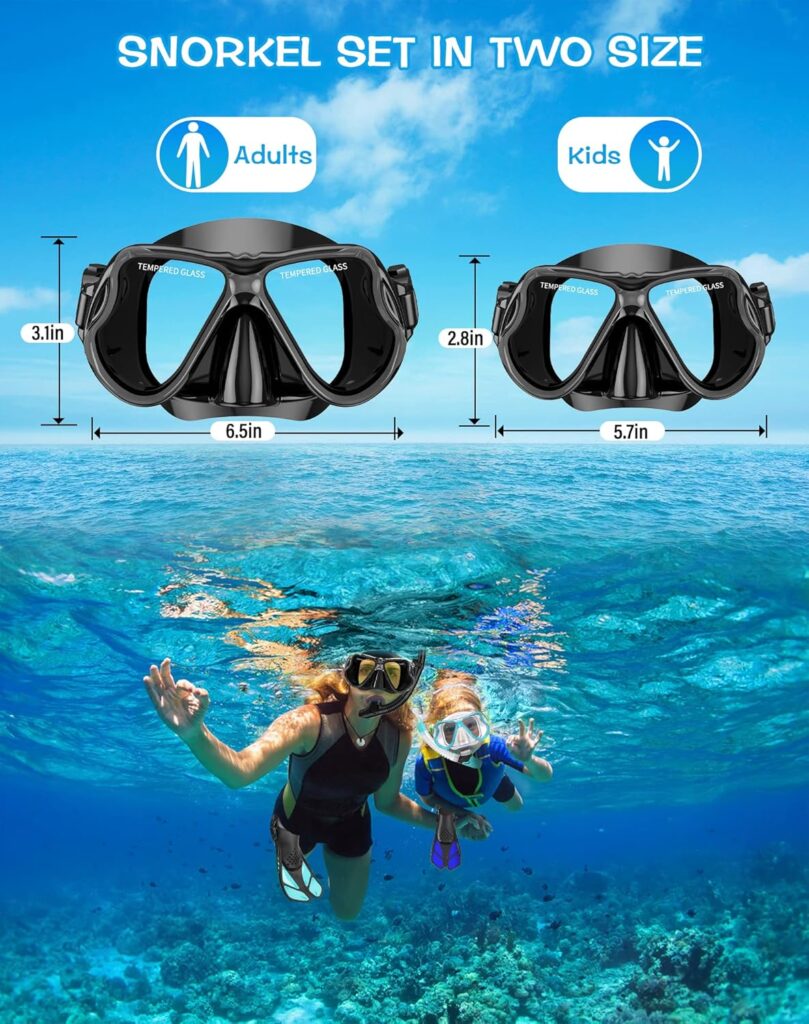Scuba diving is more than just an underwater adventure; it’s a powerful way to boost physical and mental well-being. Discover the various health benefits experts believe scuba diving can offer, from improved cardiovascular health to stress relief and enhanced mindfulness.
Introduction:
Scuba diving, once viewed purely as a recreational activity, has gained recognition for its wide range of health benefits. While it offers an unparalleled sense of adventure by exploring the depths of the ocean, it also contributes positively to both physical and mental health. Experts have delved into how scuba diving can be a holistic workout for the body and a calming retreat for the mind. In this article, we will explore the physical, mental, and emotional health benefits of scuba diving as shared by professionals in the field.
Physical Health Benefits:
1. Cardiovascular Health
Scuba diving is a low-impact aerobic activity that offers significant cardiovascular benefits. According to fitness experts, swimming underwater requires a certain degree of endurance and stamina. The constant movement in the water—especially when using fins—engages multiple muscle groups, promoting better heart health and improving circulation.
2. Improved Breathing and Lung Capacity
Underwater, divers must control their breathing to conserve air and prolong their time below the surface. This process encourages deep, diaphragmatic breathing, which increases lung capacity over time. Experts suggest that the slow, rhythmic breathing used in scuba diving is beneficial for people with breathing disorders like asthma, as it trains the lungs to become more efficient.
3. Muscle Strength and Flexibility
Scuba diving provides a full-body workout without the harsh impact of traditional gym exercises. The resistance from the water works against your body as you swim, which helps tone muscles, particularly in the legs, core, and back. The weightlessness experienced underwater allows divers to perform various movements that are often difficult on land, enhancing flexibility and joint mobility.
4. Low-Impact Workout
Because water supports the body’s weight, diving reduces the strain on joints and muscles, making it an ideal form of exercise for those who suffer from joint pain or arthritis. Physical therapists often recommend swimming and diving for rehabilitation purposes, as these activities are gentler on the body than land-based workouts.
Mental and Emotional Health Benefits:
1. Stress Reduction
Scuba diving provides a unique opportunity to disconnect from the fast-paced modern world. Being submerged in a quiet, tranquil environment can significantly reduce stress and anxiety. According to psychologists, the meditative nature of diving—where divers focus on breathing and stay present in the moment—can promote a state of calmness and mental clarity. The sense of serenity found underwater helps reduce cortisol levels, the hormone associated with stress.
2. Mindfulness and Mental Focus
Diving requires total concentration, not just on technique but also on the underwater environment. Being fully immersed in an unfamiliar, awe-inspiring world helps divers practice mindfulness, focusing solely on their immediate surroundings. This mental clarity has been linked to improved mental health, as staying present reduces the effects of mental fatigue, anxiety, and even depression.
3. Confidence and Accomplishment
Each dive presents unique challenges and experiences. Overcoming the challenges associated with exploring underwater caves, wrecks, or deep waters can foster a sense of achievement and boost self-confidence. Divers must continually adapt to changing conditions, which encourages problem-solving skills and builds resilience.
4. Connection with Nature
Many divers report feeling a strong sense of connection to nature after their underwater experiences. The beauty of marine life and coral reefs can evoke feelings of wonder and gratitude. This connection to nature has been shown to improve mood and decrease feelings of loneliness or depression, enhancing overall emotional well-being.
Social Benefits:
1. Community and Bonding
Scuba diving is often done in pairs or groups for safety reasons, which promotes social bonding. The shared experience of diving creates a unique camaraderie, as divers rely on each other for communication and support. Participating in diving communities and group trips can lead to long-lasting friendships, enhancing social well-being.
2. Cultural and Environmental Awareness
Scuba diving can increase one’s awareness of environmental issues, particularly the state of the oceans and marine life. Many divers become advocates for ocean conservation, which fosters a sense of purpose and belonging in the global community. The passion for protecting underwater ecosystems can lead to meaningful involvement in environmental causes, contributing to a sense of fulfillment and responsibility.
Expert Recommendations:
While scuba diving offers a wide range of health benefits, it’s important to follow professional advice before embarking on this activity. Experts suggest the following recommendations:
- Medical Clearance: Before diving, consult a doctor, especially if you have a pre-existing condition like heart disease, asthma, or diabetes. Many experts emphasize that fitness levels can impact a diver’s ability to handle underwater pressure and oxygen levels.
- Training and Certification: Proper training is crucial for safe diving. Certification programs like those offered by PADI (Professional Association of Diving Instructors) or NAUI (National Association of Underwater Instructors) provide essential skills, safety procedures, and education on environmental stewardship.
- Regular Practice: For divers to fully enjoy the health benefits, regular practice is key. Experts recommend divers maintain their skills through consistent diving and related activities, such as swimming or snorkeling, to stay physically fit.
Pros & Cons:
Pros:
- A full-body workout that improves cardiovascular and muscular health
- Enhances mental clarity, mindfulness, and stress reduction
- Low-impact exercise, reducing strain on joints and muscles
- Builds confidence and fosters a sense of accomplishment
- Promotes social bonding and environmental consciousness
Cons:
- Requires proper training and certification, which can be time-consuming and expensive
- Medical clearance may be necessary, limiting accessibility for individuals with certain health conditions
- Diving equipment and trips can be costly
- Certain diving environments can pose risks if safety precautions are not followed
Conclusion:
Scuba diving is more than just a thrilling underwater activity; it is a holistic exercise that supports both physical fitness and mental well-being. Experts across fields—from fitness trainers to psychologists—highlight the numerous benefits of diving, including improved cardiovascular health, enhanced lung capacity, stress relief, and increased mindfulness. The physical and emotional rewards are undeniable whether diving for leisure or health. By fostering a sense of community and environmental stewardship, scuba diving encourages a healthier, more fulfilling lifestyle.
If you’re looking for a unique way to stay fit, unwind, and connect with nature, scuba diving might just be the perfect activity for you.









